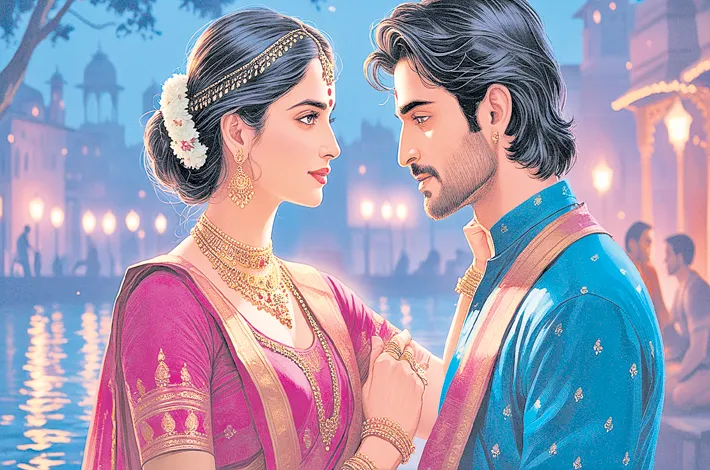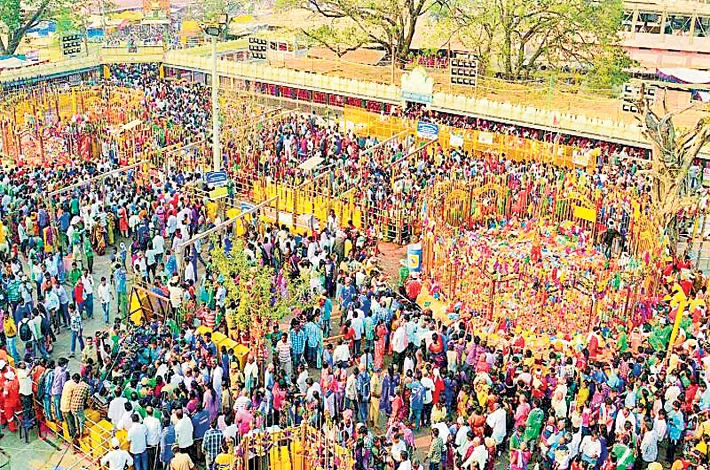The Dance of the Ocean
17-05-2025 12:00:00 AM

Madhavi became a regular at Arjun’s performances, her articles breathing life into his art. She wrote of his struggles, his dedication, and the fading legacy of classical dance in a world chasing trends. Her words drew larger crowds, and soon, Arjun’s name flickered in cultural circles. Their meetings grew frequent—coffee at roadside stalls, walks along the Hussain Sagar, where the city’s lights danced on the water
In the bustling city of Hyderabad, where skyscrapers cast long shadows over ancient temples, Arjun lived a life tethered to his passion for classical dance. A Kuchipudi dancer, he performed at small cultural festivals, his movements a blend of grace and fire, each step a prayer to the art he revered. Yet, the world around him cared little for tradition. His performances barely paid the bills, and his mother, Lakshmi, a former dancer herself, worried for his future. "Art is your soul, Arjun," she would say, "but it cannot be your bread."
One rainy evening, at a modest community hall, Arjun performed to a sparse audience. His eyes caught a woman in the front row, her gaze unwavering, as if she understood every mudra, every rhythm. Her name was Madhavi, a journalist covering local artists for a city magazine. After the performance, she approached him, her notepad clutched tightly, her eyes alight with curiosity. "Your dance," she said, "it’s like the ocean meeting the shore—wild, yet disciplined." Arjun smiled, unused to such words. They talked late into the night, her questions about his craft peeling back layers of his dreams. She saw in him what others overlooked: a man who danced not for fame, but for love.
Madhavi became a regular at Arjun’s performances, her articles breathing life into his art. She wrote of his struggles, his dedication, and the fading legacy of classical dance in a world chasing trends. Her words drew larger crowds, and soon, Arjun’s name flickered in cultural circles. Their meetings grew frequent—coffee at roadside stalls, walks along the Hussain Sagar, where the city’s lights danced on the water. Madhavi, with her sharp wit and quiet empathy, became his muse. Arjun, with his earnest passion and gentle humor, became her anchor. Love bloomed unspoken, carried in stolen glances and shared silences.
But love, like dance, is rarely simple. Madhavi came from a wealthy family, her father a businessman with rigid expectations. He dreamed of her marrying into affluence, not into the uncertain life of an artist. Arjun, too, carried burdens. His mother’s health was failing, and medical bills loomed like storm clouds. He took up odd jobs—teaching dance to children, performing at corporate events—sacrificing his art’s purity to keep his family afloat. Madhavi urged him to chase bigger stages, to apply for grants, but Arjun hesitated. "Dance is my truth," he told her. "I don’t want it tainted by ambition."
One evening, Madhavi invited Arjun to her home for a family gathering, hoping to bridge their worlds. Her father, Venkatesh, was polite but cold, his eyes appraising Arjun like a ledger. "A dancer?" he said, his tone heavy with dismissal. "Art is a hobby, not a life." Madhavi’s heart sank, but Arjun only smiled, his dignity unshaken. Later, under the starlit sky, he told her, "I don’t belong in your world, Madhavi. But I’ll carry you in mine, always."
The turning point came when Madhavi’s father arranged her engagement to a wealthy suitor, Rohan, a man who saw her as a trophy, not a soul. Madhavi, torn between duty and love, confronted Arjun. "Run away with me," she pleaded, her voice breaking. Arjun’s heart ached, but he saw the life she would lose—security, family, stability. "You deserve more than a man who can’t promise you tomorrow," he said, his voice steady despite the pain. He walked away, leaving her in tears, the rain masking her sobs.
Arjun threw himself into his art, creating a new Kuchipudi piece, Sagara Sangamam—the confluence of the river and the sea. It was his love letter to Madhavi, every step a memory of her laughter, her strength. The performance was set for a prestigious festival, and Madhavi, now engaged, attended in secret. As Arjun danced, the stage became an ocean, his movements a tide of longing and sacrifice. The audience was spellbound, but Madhavi saw only him—his pain, his love, his truth. Tears streamed down her face as she realized he had poured their story into his art.
After the performance, Madhavi met him backstage, her engagement ring glinting like a shackle. "You’ve given me your heart in this dance," she whispered. "But I can’t keep it." Arjun nodded, his eyes soft. "Keep my art, then," he said. "It’s all I have to give." She left, her steps heavy, knowing she would marry Rohan to honor her family.
Months later, Arjun’s dance troupe gained recognition, his Sagara Sangamam earning invitations to international festivals. But his health faltered, the strain of his sacrifices taking its toll. Madhavi, now married, read about his success in a newspaper, her heart heavy with what could have been. She visited one of his performances, watching from the shadows. Arjun danced, weaker but no less radiant, his body a vessel for the art he loved more than life.
In the end, Arjun’s legacy lived on, not in wealth or fame, but in the hearts he touched. Madhavi, years later, started a foundation for classical dancers, naming it Sagara Sangamam in his memory. She never danced, but she carried Arjun’s rhythm in her soul, a love eternal, like the ocean meeting the shore.








